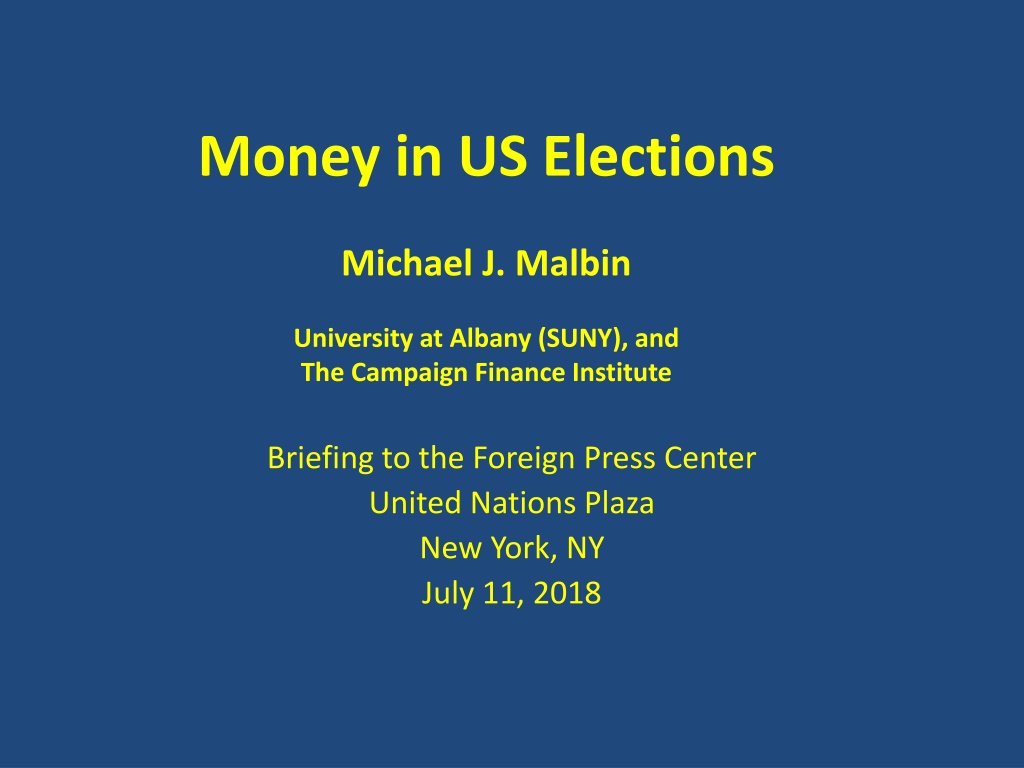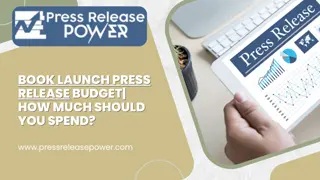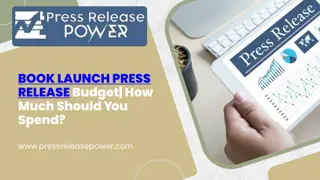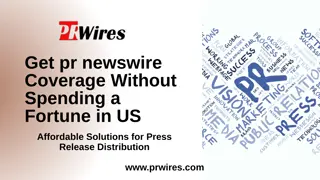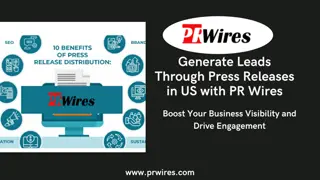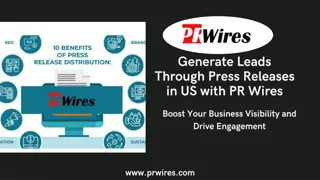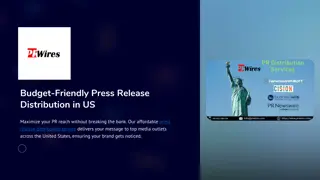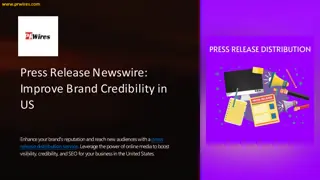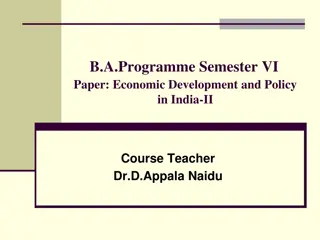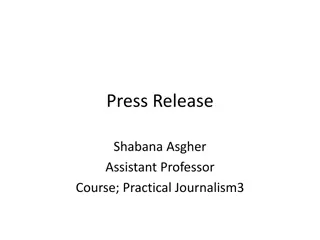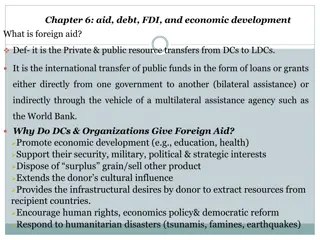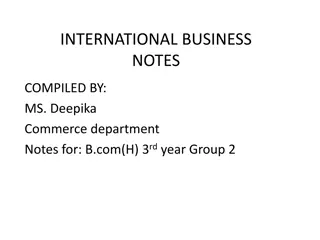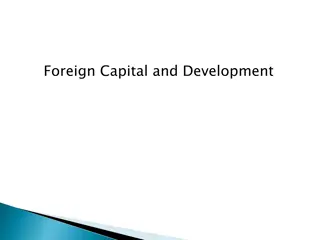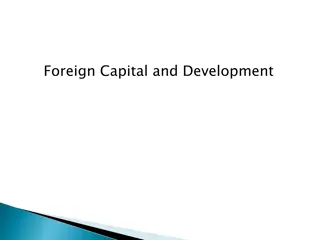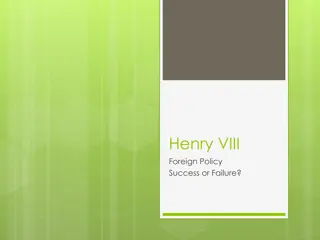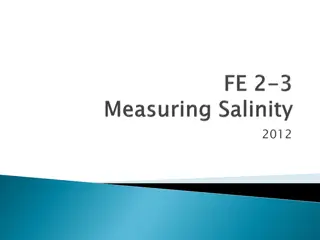Insights on Money in US Elections
Explore the role of money in US elections through a briefing by Michael J. Malbin from the University at Albany and The Campaign Finance Institute. Discover insights on party-candidate balance, fundraising regulations, public financing, and private fundraising systems in the US political landscape.
Uploaded on Dec 15, 2024 | 0 Views
Download Presentation

Please find below an Image/Link to download the presentation.
The content on the website is provided AS IS for your information and personal use only. It may not be sold, licensed, or shared on other websites without obtaining consent from the author. Download presentation by click this link. If you encounter any issues during the download, it is possible that the publisher has removed the file from their server.
E N D
Presentation Transcript
Money in US Elections Michael J. Malbin University at Albany (SUNY), and The Campaign Finance Institute Briefing to the Foreign Press Center United Nations Plaza New York, NY July 11, 2018
Underlying Fundamentals Single Member District, Plurality Wins + Separation of Powers Candidate centered politics
Party / Candidate Balance Parties > important in US than 50 years ago. But much less than in parliamentary voting. Especially true about money. Parties help and supplement, but Candidates raise their own money. How much?
Fundraising is Regulated Here are the contribution limits for federal elections, 2017-2018. (Source, next slide: Federal Election Commission) (All other slides: Campaign Finance Institute)
Different rules for state elections. Governed by state law. Good source: www.CFInst.org
Public Financing A few states and localities supplement private financing with public grants or matching funds. Once an important factor in presidential elections, but no longer. None for congressional. This map shows the states.
In Private Fundraising System: Following slide will show: 1. Most incumbents generally raise more than most challengers. 2. You don t need more money to win.
Small Donors Some candidates a minority raise substantial funds from small donors. With the Internet, this has become an alternative to large $ fundraising. Especially true in place with public financing But also in some high profile, privately funded races.
Other End of the Spectrum Mega-Donors to Super PACs
Since 2010 Independent Expenditure Growth Supreme Court 2010 Citizens United and related decisions Unlimited contributions for IE spenders Result = explosion in IEs
Predictions for 2018 Competition for majority control huge incentive for outside $. Senate and House linked electorally. HR more likely to flip than Senate. For Senate majority to be at stake, Dems will be clearly favored in HR. If HR control is tight, majority for Senate probably out of reach for the Dems. IEs will flow toward battle for majority S or H
